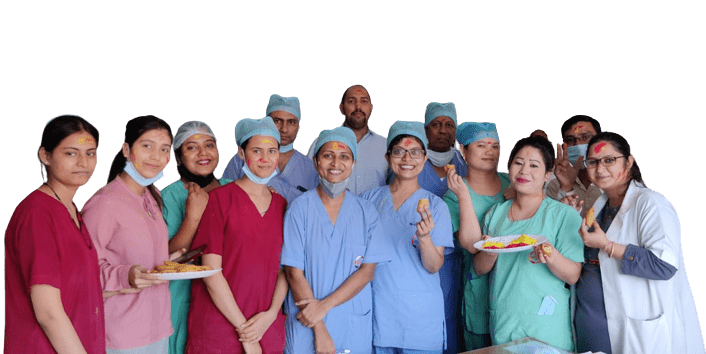Need Help?
We are here to help.
We care for each one who come to us with hope in their hearts.

Many times couples try for 1-2 months to conceive and when they are not successful they start worrying. Conception is a process that requires proper timing. The lady is fertile in the middle phase of her menstrual cycle. In a 30 day regular cycle the fertile period is usually between the 12th to the 16th day, a broader window of 10th to the 20th day can be taken. The counting of days starts from the first day of the menstrual flow. During intercourse there should be no use of any chemicals that are toxic to the sperms like some spemicidal jellies. Following intercourse the lady should lie with her bottoms slightly elevated on a pillow for about 15-20 min before using the washroom. Many times ladies complain that the fluid has all been expelled. This is a common occurrence and only a few sperms are need to reach the egg and most of the fluid is usually expelled.
Once ovulation happens in the mid cycle the tubes grasp the oocyte in a suction process and the sperms travel up the uterus into the tube and then 1 sperm out of millions fertilizes the single egg. This is a chance phenomenon, about 60-70% of fertile couples are successful in the first attempt and about 80-90% in about 1 year.
Thus we see that fertility is a complex process and chance phenomenon. Young couples (>30 years) should not panic in the initial few months and they should practice regular intercourse in their fertile period for about 6months to 1 year.
There are however a set of patients which will need investigations earlier these are women with Polycystic ovaries, reduced ovarian reserve and endometriosis. Such women usually present with irregular, scanty of painful periods. Mens should also get them evaluated with a semen analysis if they are unsuccessful to conceive after a year ( provided they are youn couples). Older women (< 35years) must start investigation sooner.
Fertility is a age dependent process specially for a female, the younger the female is the easier it is for her to conceive. Therefore, delaying conception to beyond 35 years is not a good idea.
Lifestyle plays an important role in fertility. Healthy diet with good amount of fresh fruits and vegetables, the right balance of proteins and carbohydrates, less of sugars and fats and avoidance of outside food should be undertaken. Couples must abstain from smoking and alcohol. Reduction in screen time and devoting time to each other helps in the process. A regular exercise pattern should be adopted.
Once 6 months to a year is complete then investigations must start. It usually starts with a semen analysis, egg reserve testing, other hormonal test and a transvaginal scan of the uterus, ovaries and surrounding structures. The problems detected could be many – low or no sperm count, polycystic ovaries, endometriosis, reduced ovarian reserve and tubal problem, to name a few.
The treatment of this conditions varies from lifestyle advice, medical treatment, surgical treatment and IVF. IVF is not needed for most couples. But for some couples it is definitely indicated and the sooner it is adopted there are better chances of pregnancy. Zero- low sperm count, tubal block, reduced ovarian reserve, advanced female age and failure to other treatment for more than 5 years are definitely indications for IVF.
We care for each one who come to us with hope in their hearts.

Disclaimer – Dr Kaberi is not associated with any Hosptial/Clinic other than “Advanced Fertility and Gyne Center (AFGC)”. AFGC has only four centers at present 1. “Lajpat Nagar” 2. “CR Park Delhi” 3. “Noida” 4. “Gurgaon“.